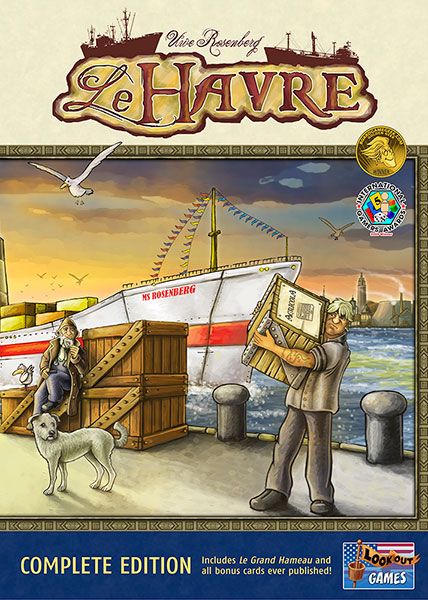Le Havre (2008) Board Game
Le Havre is a board game designed by Uwe Rosenberg and released in in 2008. The game is set in the French port city of Le Havre and revolves around players managing resources and building structures to create a successful harbor economy. Known for its strategic depth and replayability, Le Havre has gained a dedicated following among board game enthusiasts.
Game Components of Le Havre
How To Setup Le Havre
Setting up Le Havre involves preparing the game boards, distributing the player meeples, and organizing the various resource tiles and markers. The setup time is relatively quick, taking around 5-10 minutes. Players need to arrange the supply tiles, food tiles, and other components according to the rules outlined in the rule book.
Gameplay Mechanics and Game Objective
Player Experience
Le Havre offers a deeply strategic gameplay experience, requiring careful planning and resource management. Players take on the role of shipping magnates in the French port of Le Havre, navigating the complexities of resource conversion, building construction, and food management for their workers. The game is highly replayable due to the variety of buildings and resources available each game, allowing players to explore different strategies and outcomes.
Pros
Cons
Personal Thoughts on Le Havre
Le Havre is ideal for fans of economic and city-building games who enjoy deep strategic gameplay and resource management. It is particularly suited for experienced players looking for a game that rewards careful planning and foresight. While it may not be the best fit for new players due to its complexity, it is a highly regarded game within the board game community, often compared to other classics like Agricola and Puerto Rico.
We are supported by our audience. When you purchase through links on our site, we may earn an affiliate commission, at no extra cost for you. Learn more.

